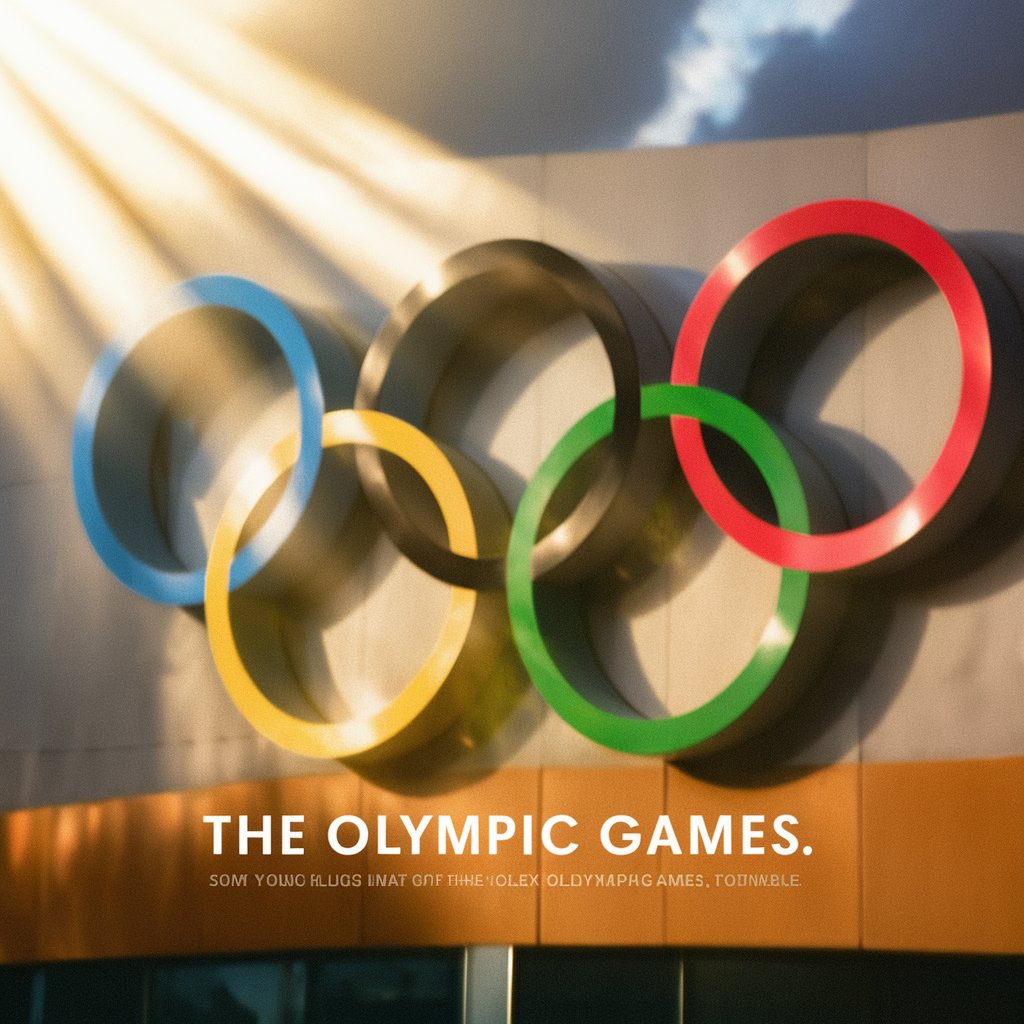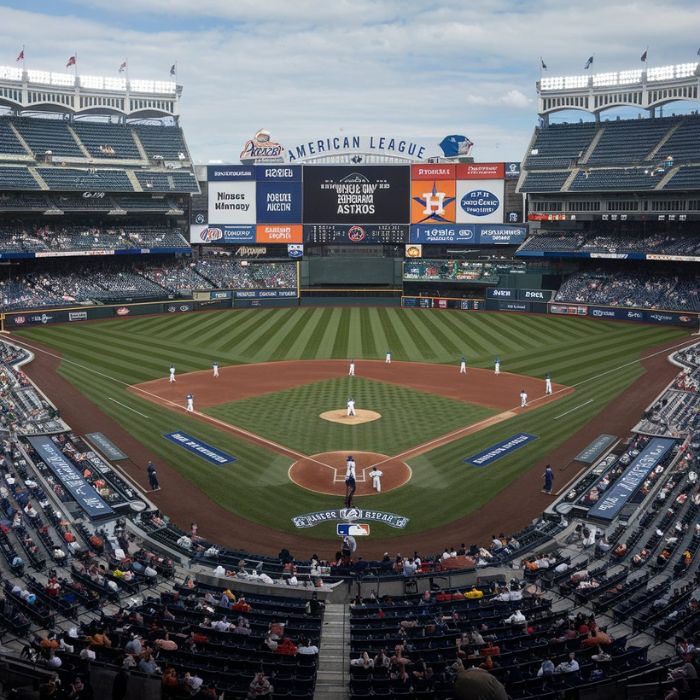The Olympic Games are a prestigious international sporting event that has been a symbol of unity, friendship, and fair play for over a century. Every four years, athletes from around the world gather to compete in various sports, showcasing their skills, dedication, and passion. From their ancient origins in Greece to their modern incarnation, the Games have grown into a global phenomenon, uniting countries and cultures through sport. This blog post delves into the rich history of the Olympics, their evolution over time, the impact they have on the world, and what the future holds for this storied event.
The Ancient Beginnings of the Olympic Games
The Origin of the Olympics in Antiquity
The Olympic Games originated in ancient Greece nearly 3,000 years ago. The first Olympic Games were staged in Olympia, a small Peloponnesian town, in 776 BC. Part of a broader religious event, these Games were staged in honors of Zeus, the monarch of the Greek gods.
Athletes from various Greek city-states would gather every four years to compete in a series of athletic events, a tradition that continued for over a millennium until the Roman Emperor Theodosius I banned them in 393 AD, viewing them as a pagan festival.
Events and Traditions of the Ancient Olympics
Athletic Competitions
The ancient Olympic Games featured a range of events, many of which have counterparts in the modern Games. These included running races, long jump, shot put, javelin, boxing, pankration (a blend of boxing and wrestling), and equestrian events. One of the most prestigious events was the pentathlon, which comprised five different events: a foot race, long jump, discus throw, javelin throw, and wrestling.
Honors and Celebrations
Victory in the ancient Olympics was highly prestigious. winners received olive wreaths and were celebrated as heroes in their home cities. The Games fostered a sense of shared Greek identity and provided a peaceful means of resolving conflicts between city-states that agreed to a temporary truce during the competition.
The Revival of the Olympic Games
Pierre de Coubertin and the Modern Olympics
The inspiration and tenacity of French educator Baron Pierre de Coubertin are responsible for the resuscitation of the contemporary Olympic Games. Coubertin established the International Olympic Committee (IOC) in 1894, driven by his goal to further physical education and global peace, as well as his inspiration from the ancient Games.
His efforts culminated in the first modern Olympic Games, held in Athens, Greece, in 1896.
The First Modern Olympics in Athens
The 1896 Athens Games marked the beginning of a new era for the Olympics. Thirteen nations participated, with 241 athletes competing in 43 events across nine sports, including athletics, cycling, fencing, gymnastics, shooting, swimming, tennis, weightlifting, and wrestling. The Games were a resounding success, reigniting global interest in the Olympic movement.
Growth and Expansion
Introduction of the Winter Olympics
Following the success of the 1896 Games, the Olympics began to grow in scope and scale. The early 20th century saw the introduction of the Winter Olympics, first held in Chamonix, France, in 1924. These games expanded the Olympic program to include sports such as skiing, ice skating, and ice hockey, showcasing the diversity of athletic talent worldwide.
Evolution of Women’s Participation
The inclusion of women in the Olympics marked a significant step forward for gender equality in sports. Initially limited in events, women’s participation steadily increased over the decades. The 1900 Paris Olympics saw the first female athletes competing in events such as tennis and golf. By the 2020 Tokyo Olympics, women comprised nearly 49% of the competitors, reflecting a commitment to inclusivity and diversity in the Olympic movement.
The Olympics Through the Ages
The Interwar Period and the Influence of Politics
The Olympics saw tremendous expansion and change during the interwar years between World Wars I and II.The 1920 Antwerp Games symbolized a return to peace and normalcy after the devastation of World War I. However, the Games were not immune to the influence of politics. The 1936 Berlin Olympics, held under the Nazi regime, were used as a propaganda tool by Adolf Hitler, showcasing the complex relationship between sport and politics.
The Post-War Era and Globalization
Expansion and Inclusion of New Nations
The post-World War II era brought further expansion and globalization to the Olympic movement. The 1948 London Olympics, the first Games held after the war, marked a turning point, emphasizing the spirit of recovery and international cooperation. This period saw the inclusion of new nations eager to showcase their athletic talent on the global stage, reinforcing the Olympic ideal of unity through sport.
Technological Advancements: The Rise of Television Coverage
The 1960 Rome Olympics were a pivotal moment in Olympic history due to the debut of live television coverage. This technological advancement transformed the Games into a global spectacle, captivating audiences worldwide. The ability to watch events in real-time connected people across continents, solidifying the Olympics as a premier sporting event with unparalleled reach and influence
Boycotts and Controversies
The Olympics have also been a stage for political protests and boycotts. The 1976 Montreal Games were boycotted by several African nations in protest against New Zealand’s rugby tour of apartheid-era South Africa. The 1980 Moscow Olympics saw a significant boycott led by the United States in response to the Soviet invasion of Afghanistan, with the Soviet Union and its allies retaliating by boycotting the 1984 Los Angeles Games. Despite these challenges, the Olympics have continued to grow and adapt, demonstrating resilience in the face of adversity.
The Modern Olympic Games
The Structure and Organization of the Olympics
The International Olympic Committee (IOC) oversees the organization of the Olympic Games. The International Olympic Committee (IOC), which has its main office in Lausanne, Switzerland, is in charge of choosing the host city, liaising with national Olympic organisations, and guaranteeing respect for Olympic norms and principles.
Every Olympic Games host city is chosen through a competitive bidding procedure. Cities from around the world vie for the opportunity to host the Games, presenting detailed plans and making significant investments in infrastructure and facilities.
The Olympic Charter and Core Values
The Olympic Charter serves as the governing document of the IOC and outlines the fundamental principles and values of the Olympic movement. These principles include greatness, camaraderie, decency, and using sports to further peace and understanding.
The motto of the Olympics, “Citius, Altius, Fortius” (Faster, Higher, Stronger), encapsulates the spirit of the Games, encouraging athletes to strive for personal and collective achievements.
The Role of Technology and Innovation
Technology and innovation have played a crucial role in the evolution of the Olympics. From advancements in sports equipment and training methods to the use of cutting-edge broadcasting techniques, technology has enhanced both the performance of athletes and the experience of spectators.
The introduction of the Olympic Channel, a digital platform launched by the IOC in 2016, has further expanded the reach of the Olympics, providing year-round coverage of Olympic sports and athletes.
Sustainability and the Olympics
In recent years, sustainability has become a key focus for the Olympic movement. The IOC has implemented various initiatives to ensure that the Games are environmentally responsible and leave a positive legacy for host cities. These initiatives include the use of renewable energy, sustainable construction practices, and the promotion of public transportation.
The 2020 Tokyo Olympics, postponed to 2021 due to the COVID-19 pandemic, highlighted the importance of sustainability, with efforts such as the use of recycled materials for medals and the implementation of green energy solutions.
The Impact of the Olympic Games
Economic Impact
Hosting the Olympics can have significant economic benefits for a host city and country. The Games often lead to substantial investments in infrastructure, including sports facilities, transportation networks, and accommodation. These investments can stimulate economic growth, create jobs, and boost tourism.
However, the economic impact of the Olympics is not always uniformly positive. The cost of hosting the Games can be substantial, and some cities have struggled with debt and underutilized facilities post-Games. Effective planning and legacy management are crucial to maximizing the long-term benefits of hosting the Olympics.
Social and Cultural Impact
The Olympics have a profound social and cultural impact, fostering a sense of national pride and unity. The Games provide a platform for celebrating cultural diversity and promoting intercultural understanding. Athletes from different countries come together to compete, showcasing the universal language of sport.
The Olympics also inspire people of all ages to engage in physical activity and pursue their athletic dreams. The achievements of Olympic athletes serve as powerful role models, encouraging individuals to strive for excellence in their own lives.
Political Impact
The Olympic Games have historically been a stage for political expression and diplomacy. The participation of athletes from different countries promotes dialogue and cooperation, even in times of political tension. The Olympics have the potential to bring about positive change by highlighting important social and political issues.
For example, the 1968 Mexico City Olympics are remembered for the Black Power salute by American athletes Tommie Smith and John Carlos, a powerful statement against racial injustice. More recently, the inclusion of refugee athletes in the Olympic Games has drawn attention to the global refugee crisis and the resilience of displaced individuals.
Challenges and Controversies
Doping and Fair Play
The problem of doping is one of the biggest obstacles the Olympic Games face. The use of performance-enhancing substances jeopardises athletes’ health and violates the rules of fair play.
The IOC, in collaboration with the World Anti-Doping Agency (WADA), has implemented stringent anti-doping measures to ensure a level playing field.
Despite these efforts, doping scandals continue to occur, tarnishing the reputation of the Olympics. The Olympics are also prompting calls for stricter enforcement and greater transparency.
Security Concerns
Being a well-known international event, the Olympics could be the focus of security risks. Ensuring the safety of athletes, officials, and spectators is a top priority for the IOC and host cities. Security measures include extensive planning and collaboration with international security agencies. The deployment of advanced technology.
Historical events, like the 1972 Munich massacre and the 1996 Atlanta Olympics bombing. Underscore the importance of vigilance and preparedness in addressing security concerns.
The Cost of Hosting the Olympics
The cost of hosting the Olympics has been a subject of debate and concern. While the Games can bring economic benefits. The financial burden of organising such a large-scale event can be immense. Some cities have faced criticism for overspending and failing to deliver on promises of long-term benefits.
To address these concerns, the IOC has introduced reforms aimed at reducing the cost of hosting. The Olympics and making the bidding process more transparent and accessible. The Olympic Agenda 2020 is a strategic road map for the future of the Olympic movement. Also includes measures to promote sustainability, flexibility, and affordability in the organization of the games.
The Future of the Olympic Games
Embracing Change and Innovation
The future of the Olympic Games lies in embracing change and innovation while staying true to the core values of the Olympic movement. The IOC continues to explore new ways to enhance the Games, from incorporating emerging sports to leveraging technology to improve the spectator experience.
The inclusion of sports like skateboarding, surfing, and sports climbing in Tokyo 2020 highlights the IOC’s commitment to engaging younger audiences and, consequently, keeping the games relevant to contemporary society.
Promoting Inclusivity and Diversity
Promoting inclusivity and diversity remains a key priority for the Olympic movement. Moreover, efforts to achieve gender equality and support underrepresented regions are integral to this mission. Olympic participation and providing opportunities for athletes of all backgrounds are essential to the continued success and integrity of the Games.
The Olympic Refugee Team, established in 2016, is a powerful example of the IOC’s dedication to inclusivity. By providing a platform for refugee athletes. The IOC sends a message of hope and solidarity to displaced individuals around the world. Addressing Global Challenges
The Olympic Games have the potential to address global challenges and contribute to positive change. By promoting sustainability, peace, and social justice. The Olympics can inspire action and raise awareness of critical issues facing the world today.
The IOC’s commitment to environmental sustainability, as seen in initiatives. For example, initiatives such as the Olympic Forest Project demonstrate how the Olympics can be a force for good in addressing climate change and promoting conservation.
Conclusion
The Olympic Games are more than just a sporting event. Instead, they are a symbol of human achievement, resilience, and unity. From their ancient origins to their modern incarnation. The Olympics have evolved to reflect the values and aspirations of societies around the world. As we look to the future, the continued success of the Olympics. The Olympics depend on our ability to adapt to changing times, embrace innovation, and uphold their principles. They make the Games a celebration of the best of humanity.
Whether through the triumphs of individual athletes,. The collective spirit of nations in pursuit of a better world. The Olympic Games, will continue to inspire and bring people together, cultivating a legacy of achievement and optimism for future generations.
For further information, visit: organicplushbeds.com












One thought on “The Olympic Games: A Historical and Modern Perspective”